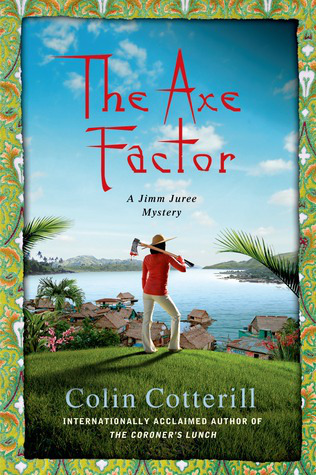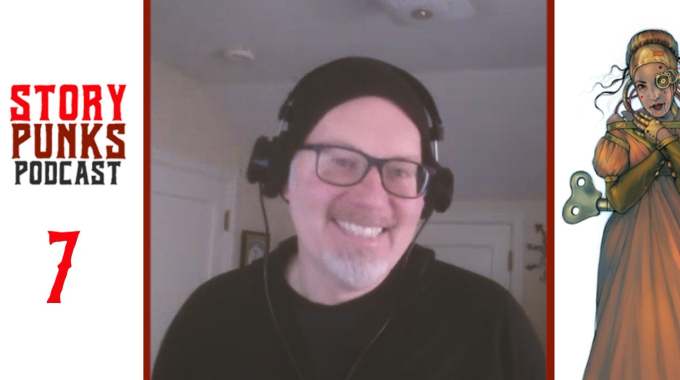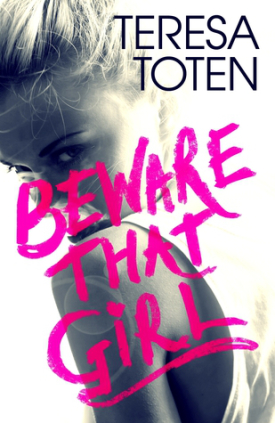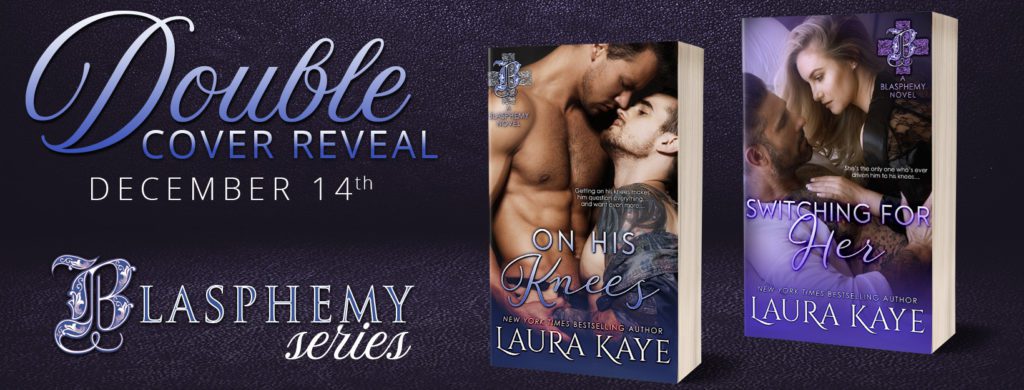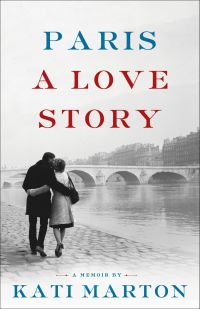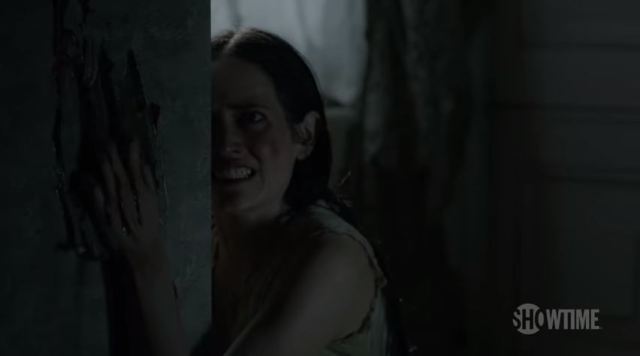
This essay was commissioned by May Walsh, who requested an essay about Penny Dreadful season 1. You can learn more about commissions here.
Stop me if you’ve heard this one before: a young woman buys a house. It is haunted, perhaps by a ghost or only by the heavy guilt and terrible misdeeds of those who came before; the difference is ultimately inconsequential, as the prose has already wrapped its way around you and started strangling. That’s gothic fiction. Of course, the misdeeds might just as well be crimes of existing while queer or mentally ill, depending on the author. Gothic fiction is a genre preoccupied with looking at the “other:” other than male, other than white, or straight, or able-bodied—and finding them frightening.
Over time those parameters began to involve. Those who were defined as Other began to make their own entries into the genre. It became a place where writers could depict characters like themselves, whether that meant being able to push against their accepted societal roles or being allowed to exist at all. As long as it ended in a neat cap that reassured the audience that proper order could be restored, any number of things were possible in the meanwhile.
Crossing the genre over with the concept of fanfiction seems a natural fit, given that fanfiction (at least in its modern incarnation) also sprang from women, queer folk, and other marginalized identities looking to write themselves into texts that excluded them. And so we have Penny Dreadful, a show gleefully intent on elbowing you in the ribs with its references while also solemnly assuring you that it has something to say. While the first season frames its plot through a discussion of women and the various ways in which they’re abused, it’s muddled by clumsy execution.
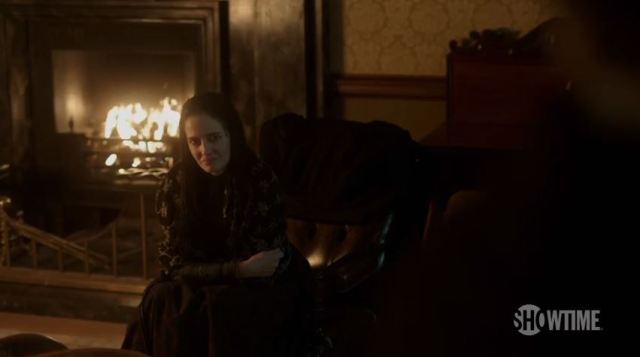
A Strong Female Character
First, a distinction: Penny Dreadful’s lead character, Vanessa Ives, is a wonderful and complex role. It’s easy to see why the challenge of playing a character struggling with literal and figurative demons would appeal to an actor and Ava Green gives a wonderful performance throughout, veering between imposing whispers in well-tailored gowns and crawling along the floor to croak damning one-liners. It’s a great opportunity above and beyond the fact that it’s always encouraging to see more series starring women.
Purely from a writing perspective, however, Vanessa is an often frustrating character, and the pitfalls of how she’s written spread outward to inform the perspective of the entire series. Theoretically, Penny Dreadful’s first season is about the relationship between Vanessa and her childhood friend Mina Harker (yes, that one), and the lengths to which Vanessa has gone in pursuit of her lost friend.
In practice, the show frequently undercuts its good intentions. Mina receives little screentime in a show rife with side characters and subplots, with her father Sir Charles receiving a far more prominent focus. That means a lot of scenes of Vanessa and Charles lamenting to one another about how important Mina is to them and bonding through the search for their lost friend-daughter-macguffin. That surrogate father-daughter relationship has far more time to develop, ultimately overtaking either character’s concern for the person who brought them together.
As the show’s larger number of subplots vie for airtime, even mentions of Mina become increasingly sparse in the season’s back half. And because Mina has no particular arc outside of how she affects Mina and Charles (we don’t even know why she joined Dracula; the show leans hard on its fanfiction roots to force assumptions), she slowly morphs from an important cornerstone of the plot to…well, to a macguffin whose feelings don’t matter much at all (her accumulated scenes run roughly five minutes in an eight hour season).
Even Vanessa herself is more often device than character, spending extensive portions of the season possessed and unaware of what’s going on around her. This has the effect of eroding the show’s only sustained relationship between two women; in the end, despite Vanessa swearing she was the only one strong enough to put Mina out of her misery, she has no active part in Mina’s final fate. If you squint and turn your head sideways there’s some sense that Vanessa’s demonic struggles are meant to be a tragic force that poisoned her ability to make friends with other women, but once again the literal metaphor shoots that intent in the foot, if the deemphasizing of Mina and Vanessa’s interactions in the season finale hadn’t done so already.
There is a small element of the series that nonetheless provides a succinct snapshot of how it operates: we know that Percy Shelley exists in the world of Penny Dreadful, because there is a recurring motif involving one of his poems. Mary Shelley, however, does not; instead, the man she was writing about is real.
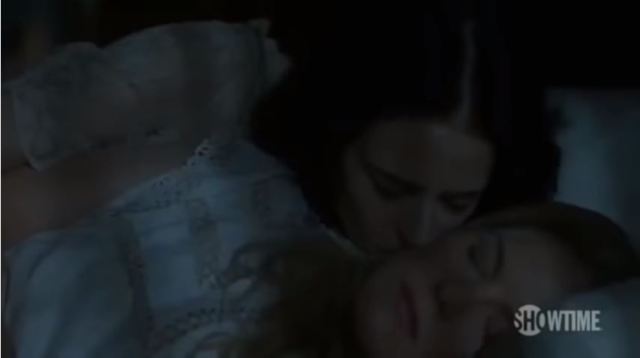
How Terrible for Those People
As you might expect from the genre conventions it draws from, Penny Dreadful has a concerted interest in otherness. This isn’t uncommon for latter day gothic stories, particularly period pieces set in the Victorian era. The power of hindsight and the historic rigidity that defined the period makes it an easy tool for displaying the disparity between societal moralities and ethical behavior as we’d think of it in the modern day.
The cruelty shown in asylum settings is a particularly ripe choice, since the audience is already primed to be more sympathetic (in theory) to modern awareness of the mentally ill; queerness comes a close second, with the ghost of Oscar Wilde pre-writing a thousand tragic tales of repression. Depending on the skill of the artist, these stories can range from pointed commentary of the current day status quo to a hearty back-pat about how much better things are now.
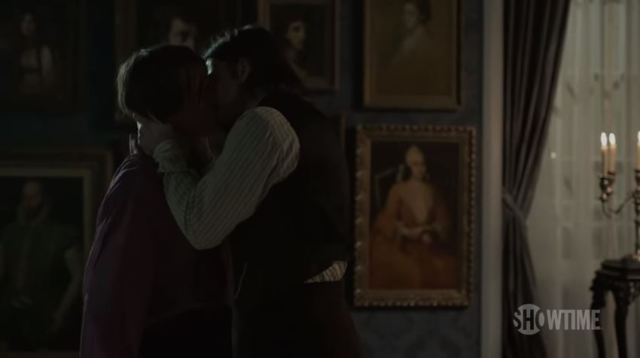
Penny Dreadful shows some successes, but stumbles due to its tendency to mistake depiction for commentary. Now, depiction can be commentary, particularly when it normalizes something considered to be taboo (Ethan Chandler’s bisexuality is the closest the season comes on this point); but when it comes to showing things like cruelty toward women, for example, simply showing it doesn’t necessarily convey the extent of the series’ opinions on the subject.
Like X-men and True Blood and countless others before it, Penny Dreadful makes the mistake of using supernatural elements as metaphors for marginalized communities. The idea is to say that these are people being persecuted for something they were born with. This winds up being a problem when the metaphorical counterpart actually is a danger to society, rather than the victim of dehumanizing hate speech merely implying that danger. Implying that vampires are metaphors for people living with AIDS, when the latter are already accused of stalking people to infect them, is the opposite of helpful.

Most of Vanessa’s arc during the season is spent grappling with the fact that she is tormented by demons, a fact that led her to be forcibly institutionalized when she was younger. The series wants this to be a shocking indictment of the cruel treatment of the mentally ill, with a focus on the abuses Vanessa suffers in the asylum. The problem is that Vanessa isn’t a mentally ill young woman being accused of possession—she is literally and actually possessed, a fact which caused her to ruin or end the lives of the only women close to her. Nor does the device serve as a metaphor for the tragedy of how society forces women to compete with one another, as by the end of the season Vanessa’s only truly emphasized and sympathetic relationships are the ones she has with men. PD wants its metaphor to have impact, but the literalizing of the supernatural element works directly in opposition to that goal.
Then there’s the series’ handling of queerness. On the one hand, there is the pleasantness of leading man Ethan Chandler’s uncommented on bisexuality; he makes a decision to go home with a man, and the series makes no comment on his orientation nor implies that the viewer should now think about him differently. On the other hand…it’s a one night stand with Dorian Grey, the literary icon of self-centered gay depravity, and Chandler never brings it up again. The only time it’s mentioned after the fade to black is when the demon-possessed Vanessa (in scenes that the writing loves to use for shock value such as the use of the n-word) later attempts to shame him for being the penetrated partner.
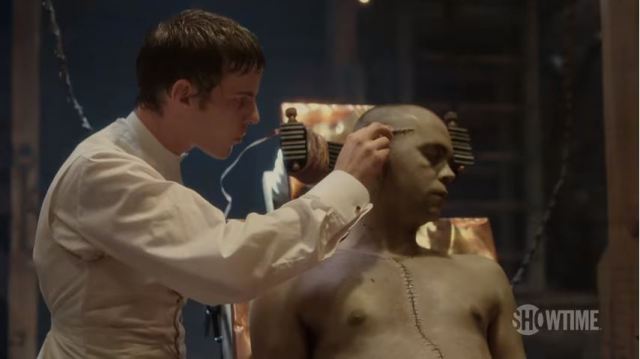
Meanwhile, Victor Frankenstein is a heavily queer-coded character (sensitive, fond of poetry, disinterested in women, invested in an intimate connection with the men he creates) who is instead only remarked on as a “virgin,” with no other exploration of his identity. Still, that ambiguity is better than the out-and-out bizarre handling of Mina and Vanessa’s relationship, one that seems to actively court subtext only to deny it: witness, for example, the flashback episode concerning their relationship being titled “Closer than Sisters” but instead focusing on how Vanessa slept with Mina’s fiancé; and ending on the line “I love you in a different way [from your father],” emphatic pause, “…enough to kill you.”
Never have I seen a series care about things in so half-hearted a manner as Penny Dreadful. It wishes to admonish Sir Charles for taking part in murder, rape, and all the other excesses of colonialism, but only bothers to have other white characters occasionally snidely remark in his direction; meanwhile, the series’ only recurring Black character is Charles’ manservant Sembene, who apparently “feels responsible” to Charles after saving his life (there’s also this whole subtext of white Victorian lady Vanessa being possessed by an Egyptian goddess that makes her dark and sexual which I am not remotely qualified to go into).
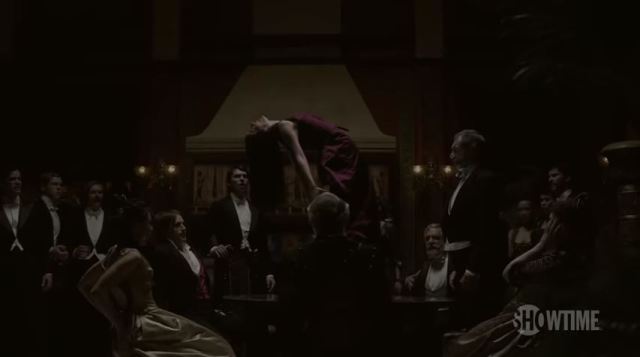
Women and their repression is ostensibly a strong theme, but the consumption-suffering Brona fades into the background halfway through the season until it’s time for her to reappear and die; Mina, as we’ve discussed, is more object than character; and all the other women are plot devices quickly shuffled offscreen (shoutout to the woman who got Frankenstein’s monster fired from the theater where he was working because she didn’t want to be harassed, and whom the theatre owner calls a bitch for this behavior; that the monster briefly has an epiphany that he’s a horrible person after this doesn’t much matter, since he’s immediately rewarded with a made-to-order bride without having to work on himself).
It’s as if the show was aware that it wanted to be progressive, but failed to think through the effort of writing a show with a truly progressive mindset, casting, and structure. It suffers from keeping its most marginalized communities at the periphery and paying them lipservice, pushing a lot of white people and heterosexuality to the forefront with a heavy sprinkling of gothic aesthetic. The result is a shambling hybrid that presents interesting ideas but fails to capitalize on them, and interesting actors trapped within a meandering plot: an intriguing spectacle that fails to live up to its own ambition.
This post is made possible by kind contributors to this blog’s Patreon. If you like what you’ve read, please consider donating to help keep it running.
Advertisements Share this: